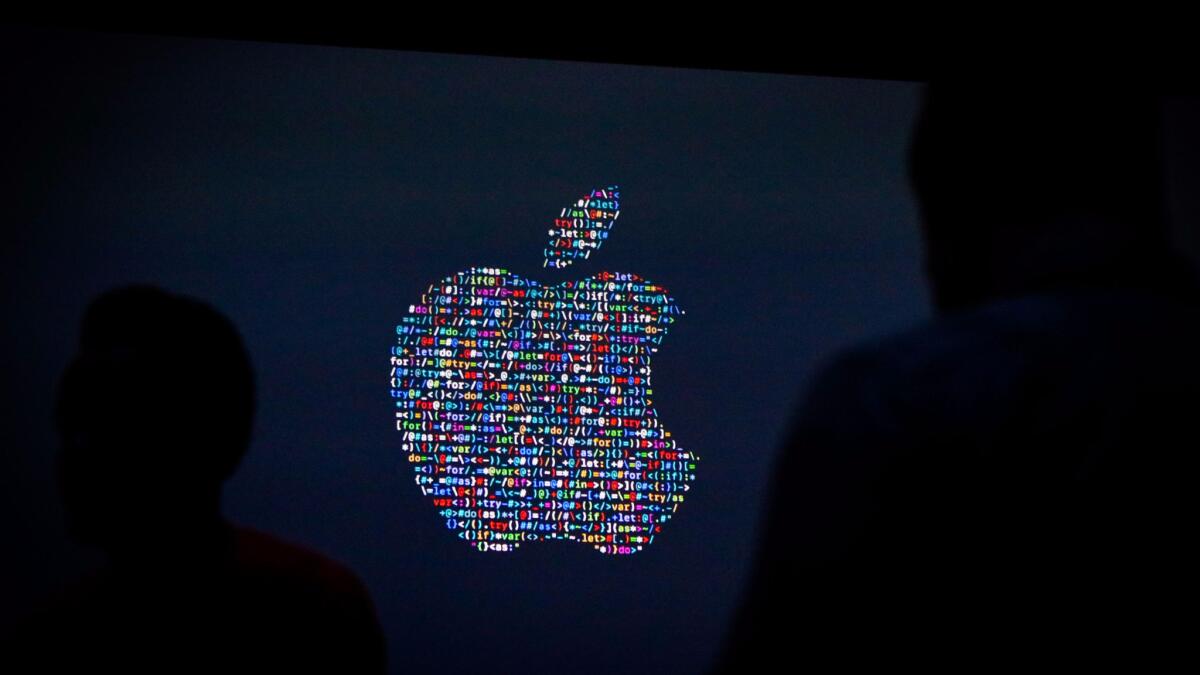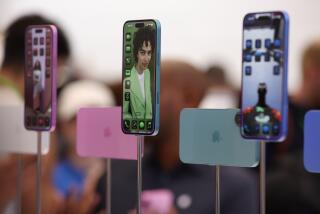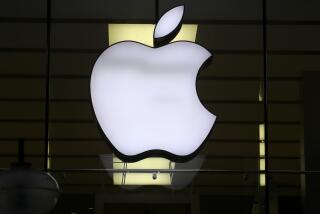Will the iPhone 7 spark sales like its predecessors? Apple investors sure hope so

- Share via
Reporting from San Francisco — There’s nothing a new iPhone can’t fix. At least that’s been true in the past for Apple Inc., which has for years used its marquee product to smash sales records, renew consumer excitement and reinforce its place as the most valuable company in the world.
But as Apple sales slumped this year for the first time in 13 years and growth hit a wall, analysts and industry experts are questioning whether the iPhone 7 — which Apple is expected to announce Sept. 7 in San Francisco — will stimulate growth like its predecessors.
“The big question for the industry is whether this upgrade cycle will offer enough features and functionality to get consumers to go to the next version of the iPhone,” said Daniel Ives, senior vice president of corporate development at mobile tech firm Synchronoss Technologies. “Consumers used to upgrade their smartphones every 2.5 years, but now we’re seeing an elongated upgrade cycle.”
Analysts predict the new iPhone line won’t be “revolutionary” — its sizes, shapes and design are expected to closely resemble the iPhone 6 and iPhone 6 Plus. But customers can look forward to an improved “home” button and a dual lens camera, which would give the iPhone camera better low-light capabilities and improved depth of field.
“They’re going to be attacking the highest end of the photography market,” said Horace Dediu, an analyst and fellow at the Clayton Christensen Institute think tank. “Apple more or less vanquished point-and-shoot cameras with the iPhone 5, so now we’re moving into higher performance.”
Another change that has kept the rumor mill churning is the predicted disappearance of the 3.5-millimeter earphone jack. Industry insiders surmise that Apple will replace its standard earphones with ones that plug into the company’s proprietary lightning port, which doubles as a charging outlet. Or they may forgo the cord completely — a shift that could nudge the entire industry toward Bluetooth earphones.
Such a transition could be good news for Beats, the headphone company Apple acquired in 2014 for $3 billion, because it’s well-positioned to sell headphones compatible with Apple’s technology.
“There are companies now making wireless in-ear earbuds that have biometric sensors in them, so it could lead to a big leap in functionality,” said Dan Ward, co-founder of mobile app development firm Detroit Labs. “Apple has focused a lot on health and wellness, so it might open up an entirely new product opportunity.”
The loss of the jack could also shave millimeters off future phones, leading to slimmer, lighter products.
The change is likely to upset some customers, though, who have already shelled out for wired headphones from third-party vendors such as Bose and Sennheiser that promise improved sound quality. If the predictions are right, they’ll need to switch models or use an adapter.
In a survey that customer-acquisition firm Fluent conducted in late August with a sample of 1,735 adults, 64% said the loss of the headphone jack was a drawback rather than an improvement because they already own non-Apple headphones that use the jack.
“It bums me out,” said Russ Frushtick, 32, a New York video producer.
Though he has used iPhones since the iPhone 3, Frushtick has eschewed Apple headsets for a pair of wired earphones from Bose. “The headphones that come packed in with iPhones are designed to be nice enough and good enough for people who don’t really care about sound quality,” he said.
If the iPhone 7 rumors are true, Frushtick would have to use an adapter with his current pair, or he’d have to invest in a wireless pair, which doesn’t interest him.
“I already have a full slate of devices I have to charge every evening,” he said. “I don’t want to add headphones to that list.”
Others have also expressed disappointed at the rumored news, which could mark the end of users conveniently using the same pair of earphones between their laptops, iPhones and other audio devices.
Still, though backlash is inevitable whenever companies announce change, Ives said Apple hasn’t yet taken a wrong step with iPhone.
The decline in phone sales has less to do with lack of consumer confidence, and more to do with market maturity, said Ives, who notes that the smartphone market in the U.S. has become saturated. Many customers aren’t upgrading because they’re happy with their older phone models, which, although good from a customer-satisfaction standpoint, doesn’t bode well for Apple’s bottom line.
The iPhone accounted for 64.9% of Apple’s revenue in the second quarter of this year; that fell to 56.7% in the third quarter. During the same period last year, iPhones accounted for 63% of the company’s revenue.
Apple released a lower-cost, four-inch iPhone this year called the iPhone SE in a bid to win market share in developing countries, the results of which are yet to be seen. But in markets like the U.S. and Europe, the premium line of iPhones such as the iPhone 6 and, soon, the iPhone 7, remain the company’s cash cow.
As the smartphone market matures, Apple must convince existing customers to fork out the money for an upgrade or to make the switch from Android devices, which is no small feat, considering Android phone makers such as Samsung have in recent years upped their game, offering premium products such as the Samsung Galaxy S phones to compete with the iPhone. (Though Samsung now faces its own challenges after issuing a recall of its flagship phone amid reports of the phone’s battery catching fire during charging).
With strong competition from Samsung, a crowded smartphone market and customers increasingly pleased with the gadgets they already own, investors are understandably nervous about Apple’s growth prospects. The company’s stock took a 5.4% hit in January after it first reported revenue growth slowing and iPhone sales stagnating.
Still, many are banking on the iPhone 7 reinvigorating the market.
“If you look at Apple’s track record, the bets they’ve made have usually paid off,” Ives said. “There’s careful innovation and development behind everything they do, and that’s why they are who they are.”
Twitter: @traceylien
UPDATES:
10:40 a.m., Sept. 2: This article was updated with details of a recall of Samsung’s flagship phone.
This article was originally published at 10:55 a.m., Sept. 1.







